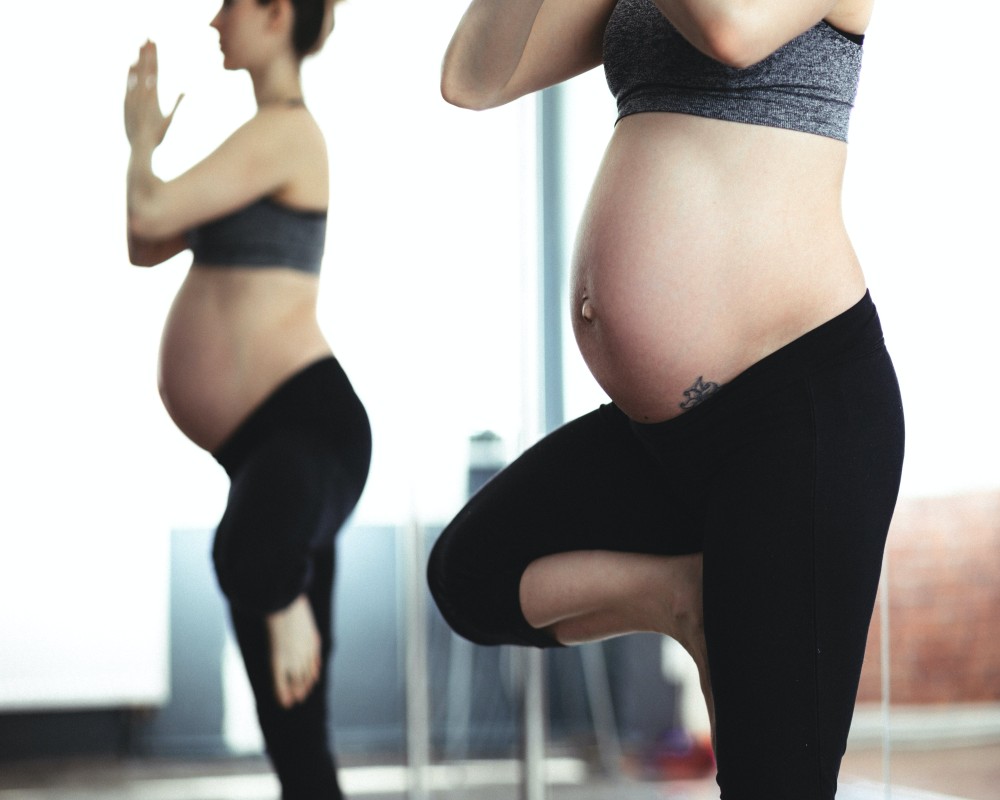Congratulations on your new addition to the family! It’s great that you’re thinking about incorporating a workout routine & starting a healthy lifestyle postpartum.
Ideally women aim for a return to pre-pregnancy weight within the timeframe of 6 to 12 months following childbirth. Typically, around half of the postpartum weight is shed within the first 6 weeks after delivery, with the remaining weight gradually being lost over the subsequent months.
Although, it is important to know that postpartum weight loss is a gradual process for many and that requires consistent efforts towards following combination of a healthy diet and regular exercise. It’s important to approach this journey with patience and focus on overall well-being rather than quick fixes. Here’s a comprehensive guide to postpartum weight loss, covering both workout and diet aspects:
Here are some general guidelines for a postpartum diet aimed at supporting weight loss:
- Gradual Weight Loss Approach: Strive for a steady and moderate weight loss rather than opting for rapid results. Setting a target of losing approximately 1-2 pounds per week is a sensible and sustainable objective.
- Well-Balanced Nutrition: Emphasize a diet that encompasses a variety of nutrient-rich foods. Ensure your meals include a mix of fruits, vegetables, whole grains, lean proteins, and healthy fats.
- Adequate Hydration: Consume an ample amount of water throughout the day. Maintaining proper hydration not only supports overall health but also plays a role in managing hunger.
- Mindful Portion Control: Be mindful of portion sizes. Opt for smaller, more frequent meals to help regulate blood sugar levels and prevent overeating.
- Incorporate Protein: Integrate sufficient protein into your diet to aid in muscle repair and promote a sense of fullness. Include lean protein sources like poultry, fish, eggs, beans, and legumes in your daily meals.
- Choose Healthy Fats: Include sources of healthy fats like avocados, nuts, seeds, and olive oil. These can help keep you satisfied and provide essential nutrients.
- Fiber-Rich Foods: High-fibre foods like whole grains, fruits, and vegetables can help with digestion and provide a feeling of fullness.
- Limit Processed Foods and Added Sugars: Minimize your intake of processed foods and those high in added sugars. These can contribute to excess calorie intake without providing much nutritional value.
- 9. Breastfeeding Considerations: If you’re breastfeeding, keep in mind that your body requires extra nutrients. Make sure you’re consuming enough calories to support both you and your baby. It’s essential to consult with a healthcare professional to determine the appropriate calorie intake while breastfeeding.
Now that we have discussed diet, here are some guidelines for postpartum workout routine aimed at weight loss. Remember to start slowly, listen to your body, and gradually increase intensity over time.
Week 1-6: Gentle Movements.
- Walking:
– Start with short, leisurely walks and gradually increase the duration.
- Stretching:
– Practise postpartum stretches that can help alleviate the pains and speed up your recovery.
Week 7-12: Low-Intensity Cardio and Strength Training
- Low-Impact Cardio:
– Include activities like swimming, stationary cycling, or elliptical training.
- Strength Training:
– Focus on bodyweight exercises initially, such as squats, lunges, and modified push-ups, remember to go easy in the start.
- Pelvic Floor Exercises:
– Incorporate some pelvic floor exercise, you can speak with your coach for ideal movements to begin with.
Week 13-24: Moderate-Intensity Cardio and Full-Body Strength
- Cardio:
– Increase the intensity of your cardio workouts gradually, aiming for at least 150 minutes per week.
- Strength Training:
– Add resistance with light weights or resistance bands. Include exercises for all major muscle groups. Do seek help from a professional trainer.
Week 25 and Beyond: Intensify Workouts
- High-Intensity Interval Training (HIIT):
– Incorporate short bursts of intense exercise, led by a trainer or a coach, followed by rest or lower-intensity periods.
- Strength Training:
– Continue to challenge yourself with progressively heavier weights.
- Flexibility and Core Exercises:
– Include yoga or Pilates for flexibility and core strength.
Additional health Tips:
- Listen to Your Body:
– If something doesn’t feel right or causes pain, stop and consult your healthcare provider.
- Stay Hydrated:
– Especially if you’re breastfeeding, hydration is crucial.
3. Posture and Alignment:
– Focus on maintaining good posture during exercises to prevent strain on your back and joints.
- Rest and Recovery:
– Ensure you get enough rest for recovery and prioritize quality sleep.
Remember, every postpartum journey is unique. Adjust the intensity and duration of your workouts based on how you feel, and be patient with your progress. If you’re unsure about where to start, consider consulting with a postnatal fitness specialist or physical therapist for personalized guidance.
Remember, everyone’s body is different, and individual nutritional needs vary. It’s crucial to consult with your healthcare provider to customize a program for weight loss after pregnancy before making significant changes to your diet, especially during the postpartum period. An exert, or a best dietician in Mumbai, if you are from Mumbai, can provide personalized advice and create personalised weight loss diet program based on your specific needs and health status.







